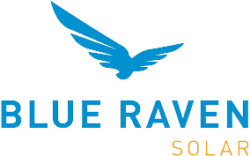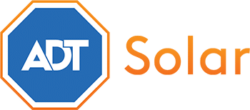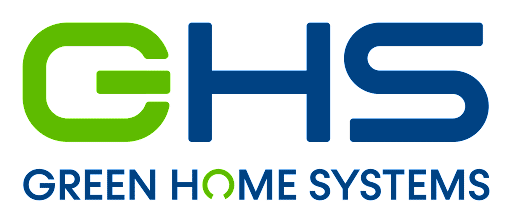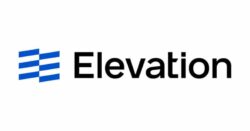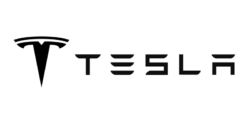Known for its electric vehicle innovation, Tesla expanded its advanced technology to the solar industry. The Tesla Energy division offers high-quality residential panels, solar roofing, and battery solutions to help homeowners save on energy costs. In our in-depth review, we’ll explore Tesla’s solar products, warranties, and customer reviews to see how it stacks up to other top solar installers in the nation.
*Certified installers vary by region—we always recommend requesting multiple quotes.
Our Take on Tesla Solar Panels
Tesla has developed innovative residential solar tech, including low-profile efficient panels, advanced solar roof tiles, and its exclusive Tesla Powerwall battery. We found navigating Tesla’s website for a sample quote easy. Its transparent pricing and streamlined ordering systems made it simple to shop for a new system without the help of a sales representative.
The company offers long-term product and performance coverage for its systems, but its 10-year comprehensive warranty falls short of other providers. In addition, we learned that many customers were dissatisfied with the company’s poor customer service, waiting months for technical support and servicing.

Tesla Solar Overview
- BBB rating: A+
- Year founded: 2015
- State availability: 50 (availability varies by ZIP code)
- Warranty: 10-year warranty for product, inverter, and roof leaks and 25-year performance guarantee
- Payment options: Full payment, solar loan (select areas)
Best Solar Companies of 2023
These are the best solar companies in Maine, according to our research and ranking methodology.
- Tesla: Best Solar Tech
- SunPower: Best High-Efficiency System
- ADT Solar: Best Solar Warranty
- Sunrun: Best Solar Panel Leasing
- Blue Raven Solar: Most Reputable
- Green Home Systems: Best Solar Roofs
- Elevation: Best Energy-Efficient Upgrades
- Palmetto Solar: Best Customer Support
Tesla Solar Services and Panel Options
Tesla uses its own solar panels for installations. Its all-black, minimalistic panels have no visible grid, a concealed edge, and a low profile. The panels interlock when installed, forming one solid solar panel array that blends with your home’s aesthetics.
These monocrystalline (mono) solar panels have efficiency ratings between 19.3% and 20.6%, depending on the model. This type of panel offers excellent energy production and has the longest life span. Based on our research of other solar providers, we found that these panels are not the most efficient panels available. However, they offer above-average energy production levels, making them a solid investment.
Tesla also includes in-house inverters for its solar systems. The inverter helps convert the direct current (DC) energy received from the sun into alternating current (AC) energy for your home. Its inverters operate at 97.5% efficiency, much higher than the average range of 93%–96%. Higher inverter efficiencies lead to better energy conversion for your home.
Other Solar Products Offered by Tesla
In addition to rooftop panels, Tesla offers additional renewable energy products for residential installations:
- Powerwall: The Tesla Powerwall solar battery has become a favorite among homeowners due to its excellent storage capacity, life span, and warranty. It comes in two models: the Powerwall 2 and the Powerwall+. While they work best as an addition to existing solar systems, the Powerwall+ integrates into a new energy system well.
- Solar roof: The Tesla solar roof serves as an alternative to traditional rooftop panels. They offer the durability of traditional roofing material with the power of solar technology. These sleek, solar tiles blend into your home’s design, providing a less noticeable installation than traditional rooftop panels. The Tesla roof is an excellent option when building a new home or when replacing your current roof.
Tesla Solar Installation Process
Tesla does not offer in-house installations. The company uses third-party certified installers for its solar projects. Here’s how the installation process works:
- Site assessment: The Tesla installers survey your roof using remote aerial technology to measure its area and slope.
- Design: The installer designs your system to fit your home’s structure and energy needs.
- Permitting: Your installer ensures all necessary permits and inspections are completed before installation.
- Installation: You can choose an installation date that suits your schedule. Tesla says most installations are completed in one day, and you only need to be at the house during the first hour. If you order a Powerwall battery, it will be activated and configured to Self-Consumption Only mode. This means the Powerwall will produce just enough energy to power your home and charge itself.
- Inspection: The installers will work with your local building department to arrange an inspection after installation is completed.
- Energization and activation: Your installer works with your local utility company to receive your Tesla system’s Permission to Operate (PTO). The company states that depending on your location, this may take one to six weeks.
Tesla Solar Panels Reviews
Tesla Energy maintains an A+ rating with the Better Business Bureau (BBB) but isn’t accredited.
When we analyzed customer reviews, we found that homeowners praised Tesla for its excellent installation process and system performance. Negative customer reviews mentioned long-term system issues and delayed service repairs.
Read what some Tesla Solar customers have said about their experiences below:
“I met with over a dozen companies before deciding to “bite the bullet” and go with Tesla Solar. Oh my goodness, did I make the right choice! To begin with, their presentation was unlike any other company I interviewed; it really impressed me, and the interactive approach was A+! I’m overjoyed to have gorgeous black solar panels on my roof! The solar panel installation was painless, and the installation crew was extremely friendly and professional!”—Vance A. via BBB
“When the presentation was done remotely, I was skeptical at first, but the solar designing technology Tesla Solar Energy quickly dispelled that concern. The presentation was outstandingly professional. The installation was quick, and my system is already producing as expected.” —Landon via BBB
“Tesla works great when it is working, but if it breaks down, you are out of luck. [B]een down 7 months now with no end in sight. [After] 4 service calls, they came out once [but it’s] still not working.”—Dale N. via Best Company
“I have had permission to operate for 20 months. It has been dead for 5 of those months, with 3 inverter failures. Tesla provides platitudes and blames the maker of the inverter. If it were a new car, the dealer would provide a loaner for outages of this duration. I cannot recommend Tesla to others at this point.”—Thomas T. via Best Company
*BBB information accurate as of June 2023.
Tesla Solar Payment Options
Tesla allows customers to buy its system up-front in cash or take out a loan in select states. Solar loans work similarly to a home or auto loan, with customers paying a monthly fee to own their panels and benefit from solar incentives.
Tesla Solar Panel Cost
Tesla provides a cost calculator to estimate solar panel installation costs based on your location and average monthly electric bill. We requested a quote for a single-family home in Atlanta, Georgia, with an average monthly electric bill of $160. We received two system quotes: “Meet Current Needs” and “Future Needs.”
The “Meet Current Needs” quote included a 9.2-kilowatt (kW) system with 23 panels and 103% estimated energy offset for $25,116—before applying incentives. The “Future Needs” quotes additional options to anticipate any energy usage increases. These options include the following scenarios:
- Electrical vehicle (add up to four)
- Home addition (enter additional square footage)
- New pool
- Increased family size (add up to four)
We added a new pool and one family addition to our quote, which increased it to a 12-kW system with 30 panels and an estimated 134% energy offset. Tesla also provides a custom quote option, and the option to add up to 10 Powerwall batteries to each system.
| System Size | Solar Production | Energy Offset | Number of Panels | Total Price | Price After Incentives |
|---|---|---|---|---|---|
| 9.2 kW | 16,523 kWh per year | 103% | 23 | $25,116 | $17,581 |
| 12 kW | 21,552 kWh per year | 134% | 30 | $32,760 | $22,932 |
*Prices do not include the cost of a Powerwall battery storage.
Tesla Solar Warranty Options
Tesla solar panels include a 25-year performance warranty which promises at least 80% power capacity for the warranty’s duration. The company also has a 10-year comprehensive warranty. This applies to all solar system components, such as solar inverters, batteries, inverters, and any roof leaks or roof-mounting problems.
Tesla State Availability
Tesla services all 50 states, but availability varies by ZIP code. Find additional solar providers in your area using the list below.
Compare Tesla to Other Solar Providers
Compare Tesla to other leading solar providers.
| Provider | Tesla | SunPower | ADT Solar (formerly Sunpro Solar) |
|---|---|---|---|
| Solar services | Solar panels, battery backup, solar roof | Solar panels, battery backup, electric vehicle (EV) chargers | Solar panels, battery backup |
| Service areas | Nationwide (installation availability varies by ZIP code) | Nationwide (installation availability varies by ZIP code) | Arizona, Arkansas, California, Colorado, Florida, Georgia, Illinois, Iowa, Kansas, Louisiana, Maryland, Mississippi, Missouri, Nebraska, Nevada, New Mexico, North Carolina, Ohio, Oklahoma, South Carolina, Tennessee, Texas, and Virginia. |
| Panels offered | Tesla | Maxeon | Canadian Solar, Q Cells, Silfab |
| Warranty length | 10-year comprehensive warranty covering panels, inverters, batteries, and roof leaks, 25-year performance guarantee | 25-year comprehensive warranty for product, labor, and panel performance | 25-year power production, panel, inverter, and labor warranty |
| Payment options | Full purchase, loan | Full purchase, loan, lease, power purchase agreement | Full purchase, loan, lease |
Is Solar Worth it?
Several factors affect whether a solar investment is worth it, such as cost, location, and energy needs. Consider the following factors before investing in solar energy.
- Climate and location: Solar panels work best with ample sunlight and cloudless days. Panels will operate on cloudy days, but your energy production will reduce. Areas with plentiful sunny days see the best cost-saving with solar energy. Frequent cloudy days and inclement weather will impact solar panels’ effectiveness, reducing your overall savings.
- Cost: A solar system requires a significant monetary investment, so you want to ensure it’s the right option for your home. Homeowners should consider the up-front costs and estimated solar panel payback period. This period represents the time it takes for solar panels to pay for themselves through energy savings. The typical payback period takes six to 10 years but varies based on your financing options, system costs, and panel quality.
- Energy usage and rates: In most cases, solar energy offsets energy costs and lowers your bills. You benefit most when your home has high energy use and electricity rates. Homes with low energy consumption or relatively low monthly bills won’t benefit financially from moving to solar.
- Roof design: You’ll need ample space to house your solar array for rooftop installation. Homeowners with limited roof space might not accommodate enough panels to support their home’s energy use. Other limiting factors include roof pitch, skylights, and chimneys.
- Solar incentives: Some states offer excellent incentives and credits to promote residential clean energy use. However, availability varies between areas. If your state offers little to no incentives, you’ll have fewer options to reduce installation costs, making your conversion less affordable.
Solar Incentives and Rebates
As mentioned earlier, we received a Tesla solar panel system quote for $25,116. After applying for the federal solar tax credit, system costs dropped to $17,581. The federal tax credit reduces installation costs by 30%. This credit applies to your owed federal taxes, helping reduce your tax liability. Only customers who own their solar system can use the federal tax credit.
Some states offer incentives, credits, and debits to help residents offset installation costs. Like the federal tax credit, state solar tax credits reduce your state tax liability. Sales tax exemptions eliminate sales tax from solar costs. With property tax exemption, you won’t incur additional taxes for adding a solar system. Net-metering programs allow homeowners to return excess energy to the grid for energy bill credits. Additional credits and rebates may come from your city, municipality, or utility company.
Check our state solar incentive guides below to find solar savings in your area.
Tesla Solar Mobile App
The Tesla app allows you to manage your Tesla solar system and other Tesla products at any time. The app displays a real-time power flow, showing how your Powerwall, grid connection, and solar system are working to power your home.
Below are the included Powerwall energy modes:
- Self-powered: You draw from your energy storage to power your home.
- Storm Watch: Tracks weather alerts and charges your Powerwall automatically in case of power outages.
- Time-based control: Your system switches to stored energy when utility rates are high.
Our Conclusion
Tesla makes a good choice for homeowners interested in sleek solar panels and advanced solar technology. Although they aren’t the most efficient panels available, they’re priced lower than more expensive brands, such as Maxeon. The company’s performance and product warranties ensure your system lasts for 25 years. Despite having quality equipment, it lacks reliable customer and technical support, based on the Tesla customer reviews we read.
As you shop for a solar installer, we recommend getting quotes from at least three providers to find the best options.
Other Solar Panel Resources
Frequently Asked Questions About Tesla Solar Panels
Our Rating Methodology
The This Old House Reviews Team is committed to providing comprehensive and unbiased reviews to our readers. After over a thousand hours of research on solar companies, interviews with experts, and common customer needs, we’ve created a detailed rating system for solar providers based on six factors:
- Solar equipment, installation, and services (25%)
- Warranty and performance guarantees (25%)
- Brand reputation and certifications (15%)
- Financing options (15%)
- Experience (10%)
- Availability (10%)
Total scores are divided by 20 for a final 5-point rating scale.
To share feedback or ask a question about this article, send a note to our Reviews team at reviews@thisoldhousereviews.com.




